教学素材 | 打造多模态七夕文化课堂
2018/08/16
“迢迢牵牛星,皎皎河汉女……” 七月初七夏秋夜,天上繁星闪耀时。茫茫银河空中挂,牛郎织女鹊桥会。
又是一年七夕时。对于老师来说,七夕节年年都过,可谓是“年年岁岁花相似”,但是学生群体却是“岁岁年年人不同”,如何在课堂上将七夕文化知识教出新意呢?小编现在为老师们奉上各种中英双语素材,助力老师们打造多模态、立体化七夕文化课堂!
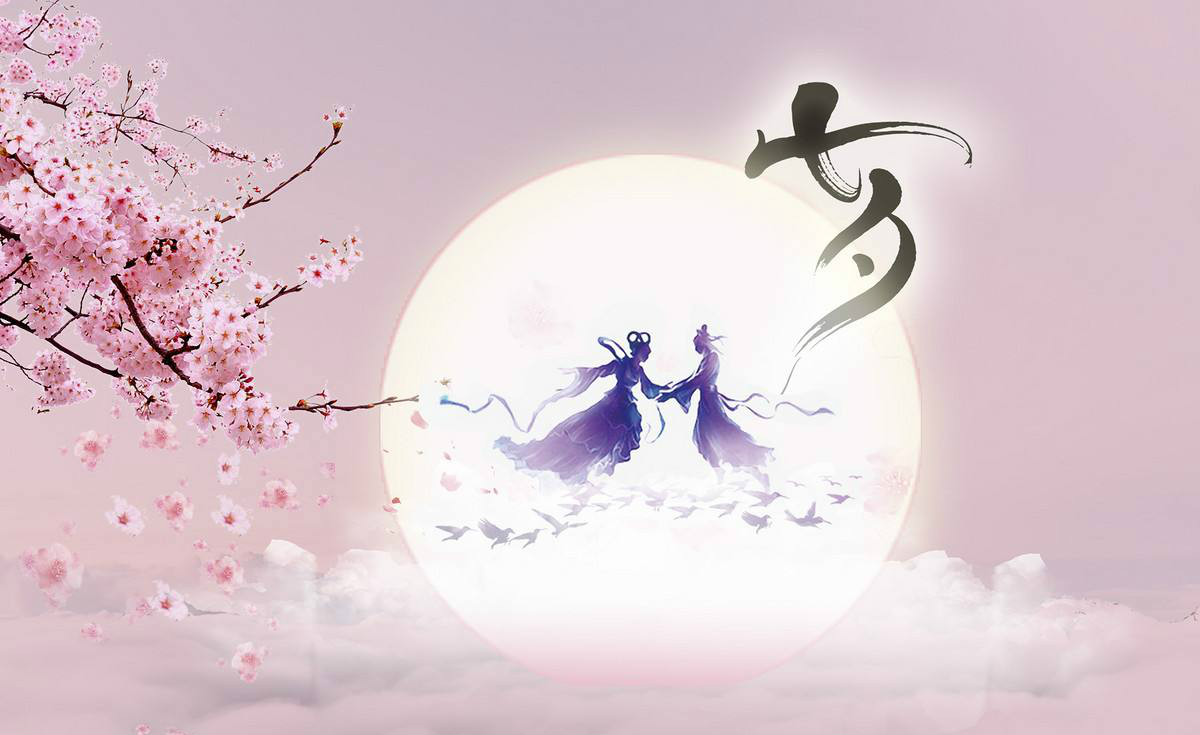
课堂导入类
图 文
Celebrated this year on August 17, the Chinese Saint Valentine's Day was created in memory of two ancient lovers who were separated by a goddess and only allowed to meet once a year.
- the Chinese Saint Valentine's Day:中国情人节(七夕),也有译作Qixi Festival(七夕节),Double Seventh Festival(双七节)甚至Magpie Festival(喜鹊节)等。
- in memory of:为纪念…, 在怀念…时,作为对某人的纪念。
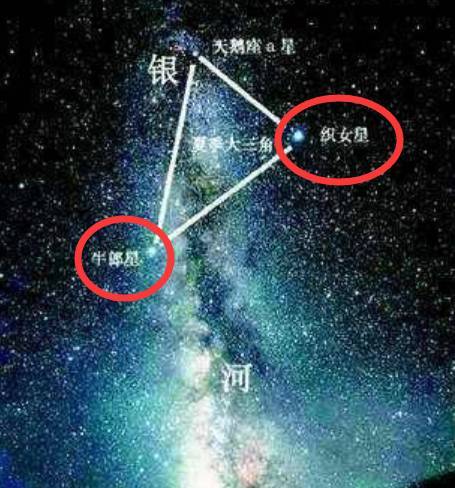
At night, people can see the Milky Way spanning from the north to the south. On each bank of it is a bright star, which sees each other from afar. They are the Cowhand and Weaver Maid, and about them there is a beautiful love story passed down from generation to generation.
- Milky Way:银河
- Cowhand:牛郎
- Weaver Maid:织女
视 频
China Daily 上有一段关于七夕由来的英语介绍,可以作为不错的课堂导入视频哟!
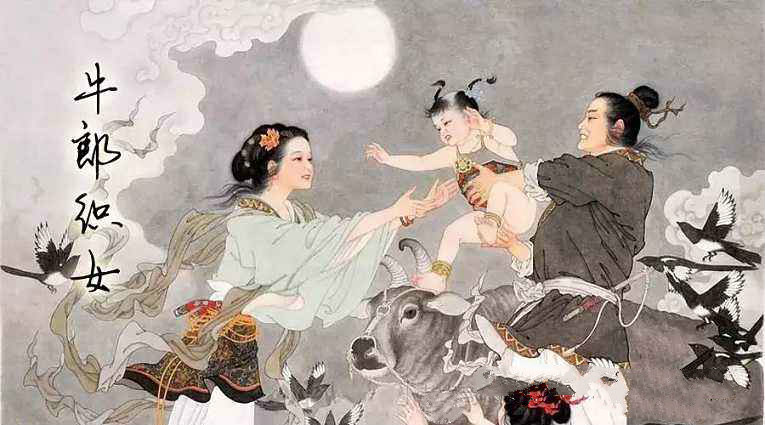
- around the corner: 在拐角处,即将到来
- fall on+日期: 适逢(某日), 正当(某日)
- be supposed to: 应该,被期望
知识拓展类
故事篇
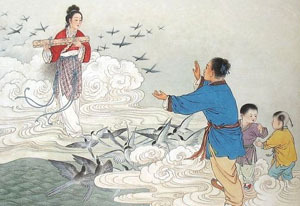
Long long ago, there was an honest and kind-hearted fellow named Niu Lang (Cowhand). His parents died when he was a child. Later he was driven out of his home by his sister-in-law. So he lived by himself herding cattle and farming. One day, a fairy from heaven, Zhi Nv (Weaver Maid) fell in love with him and came down secretly to earth and married him. The Cowhand farmed in the field and the Weaver Maid wove at home. They lived a happy life and gave birth to a boy and a girl. Unfortunately, the God of Heaven soon found out the fact and ordered the Queen Mother of the Western Heavens to bring the Weaver Maid back.
- the God of Heaven: 天帝
- the Queen Mother of the Western Heavens:西王母
With the help of celestial cattle, the Cowhand flew to heaven with his son and daughter. At the time when he was about to catch up with his wife, the Queen Mother took off one of her gold hairpins and made a stroke. One billowy river appeared in front of the Cowhand. The Cowhand and Weaver Maid were separated on the two banks forever and could only feel their tears. Their loyalty to love touched magpies, so tens of thousands of magpies came to build a bridge for the Cowhand and Weaver Maid to meet each other. The Queen Mother was eventually moved and allowed them to meet each year on the 7th day of the 7th lunar month. Hence their meeting date has been called "Qi Xi".
- celestial cattle:天牛
- hairpin: 发簪,发夹
- magpie:喜鹊
- the 7th day of the 7th lunar month 农历七月初七
表示农历日期的公式:the 序数词 day of the 序数词 lunar month
习俗篇
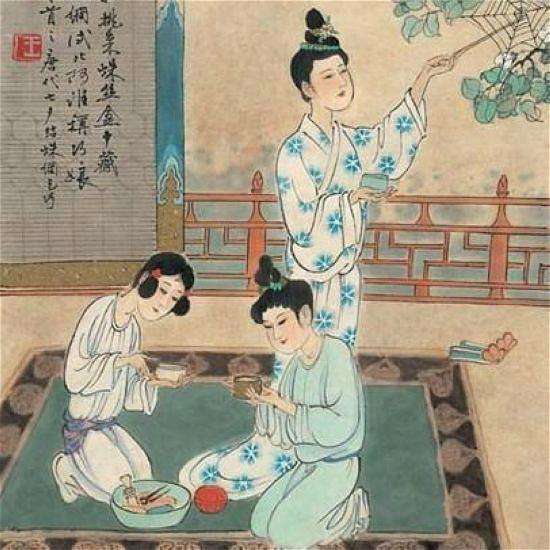
Scholars have shown the Double Seventh Festival originated from the Han Dynasty (BC202-AD220). Historical documents from the Eastern Jin Dynasty (AD317-420) mention the festival, while records from the Tang Dynasty (AD618-907) depict the grand evening banquet of Emperor Taizong and his concubines. By the Song (AD960-1279) and Yuan (AD1271-1368) dynasties, special articles for the "Qi Xi" were seen being sold on markets in the capital. The bustling markets demonstrated the significance of the festival.
- originate from: 起源于, 源于
- banquet:盛宴
- concubine:妾,妃子
- bustling market: 熙熙攘攘的市场
The festival was the day valued most by girls in the past and remains a favorite today, managing to evolve along traditional lines.
On this day, girls once used to pray to the Weaver Maid goddess, asking for great skills in needlecraft as well as satisfactory husbands.
- evolve along traditional lines:随传统演化
- goddess:女神
- needlecraft:针线活
- satisfactory husband:如意郎君
But the Weaver Maid goddess in heaven doesn't answer the young girls' prayers unless they are able to show their sincerity, often demonstrated with offerings of delicious food. The food which is usually offered at this time is home-made and propitious in nature, just like dumplings, noodles,wontons and deep-fried twisted dough sticks. However, the most famous offering is the Qiaoguo, a kind of cake with a thin fried paste inside.
- propitious: 吉利的,吉庆的
- wonton: 馄饨
- deep-fried twisted dough stick: 油条
- Qiaoguo:巧果,即七夕果,乞巧果子,七夕的应节食品。


